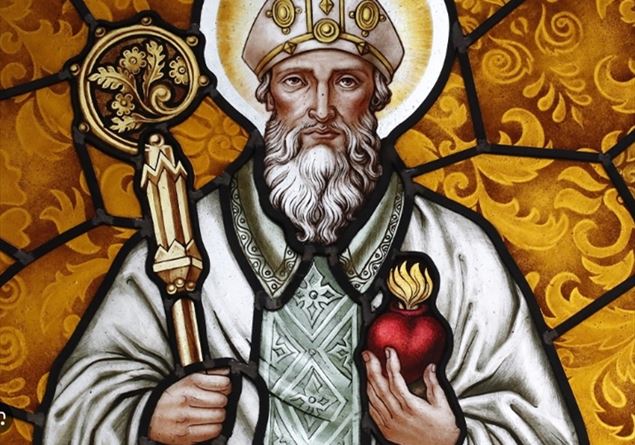Several times Pope Leo XIV has called himself “son of Sant’Agostino”. Who was Augustine? What did he write and what spiritual inheritance does he leave today? We offer you a four -episode trip published on believe n. 28/2018 To find out more closely this giant of the history of the Church and its spirituality which deeply marks that of the American Pontiff.
by Fratel Michael Davide Semeraro
Agostino is a genius and a saint and it is impossible to exhaust all aspects of his thought. Among the many and vast aspects of his doctrine we can focus on his thirst for sense that gradually turns into intelligence and prayer ability, always shared with his friends, his faithful and even his opponents. The doctor of Charity was also the doctor of grace against Pelagio but, above all, against any thinner temptation of autarchy masked by emancipation. He loved to quote the apostle continuously: “What do you have that you have not received it?” (1 Corinthian 4,7). Everything we have and above all what we are received and we cannot pride: in this Agostino is a doctor of humility. Since we receive everything, then everything we have to ask for in prayer, which forms and digs us, making us act to receive the gift of a daughter who makes brothers. We find in Agostino a splendid synthesis that binds charity, grace, humility and prayer to each other. It could be said that the whole path of Augustine is a process that goes from reason to the heart, from philosophy to charity. All his journey as a man and believer is marked by an indomitable research that answers a question that is increasingly aware and passionate as unconscious: “Where is your God?” (Psalm 41). The salmist’s question becomes for poignant Augustine: “Who is your God?”. An answer that everyone is called to give in a personal, intimate, unique way.
From a believer to a believer: love above everything
The principle of the imitation of the primitive Christian community is the main pivot of Agostino’s teaching. Everything, even monastic life, must be regulated by charity as an unavoidable form of obedience to the Gospel. The disciple is called to live with rigor, but without rigidity, a compliance without narrowness, in a newfound balance between study and prayer that is discreet and reliable testimony. Even for the monks and nuns of his time the friendship and fraternity remain the foundation of the research of shared God and the willingness to do close to everyone. A word of Agostino resonates to the heart of the journey of the Church of our day: «You must always propose love as object; Of whatever you speak you must always and only relate it to love, as well as everything you say “(Catechesis to beginners4.8). As Pope Francis recalls by denouncing the always present temptation to fall into pelagianism: «We have said many times that God lives in us, but it is better to say that we live in him, that he allows us to live in his light and in his love. He is our temple and we are sanctified in him “(Gaudete et exsulati51).


